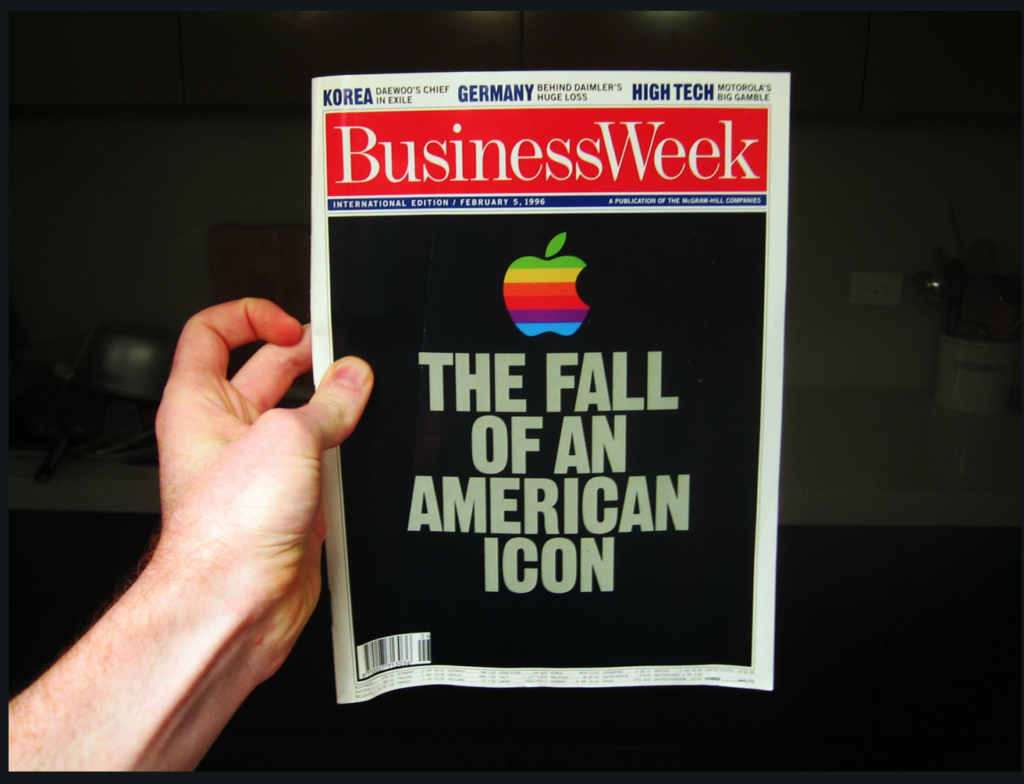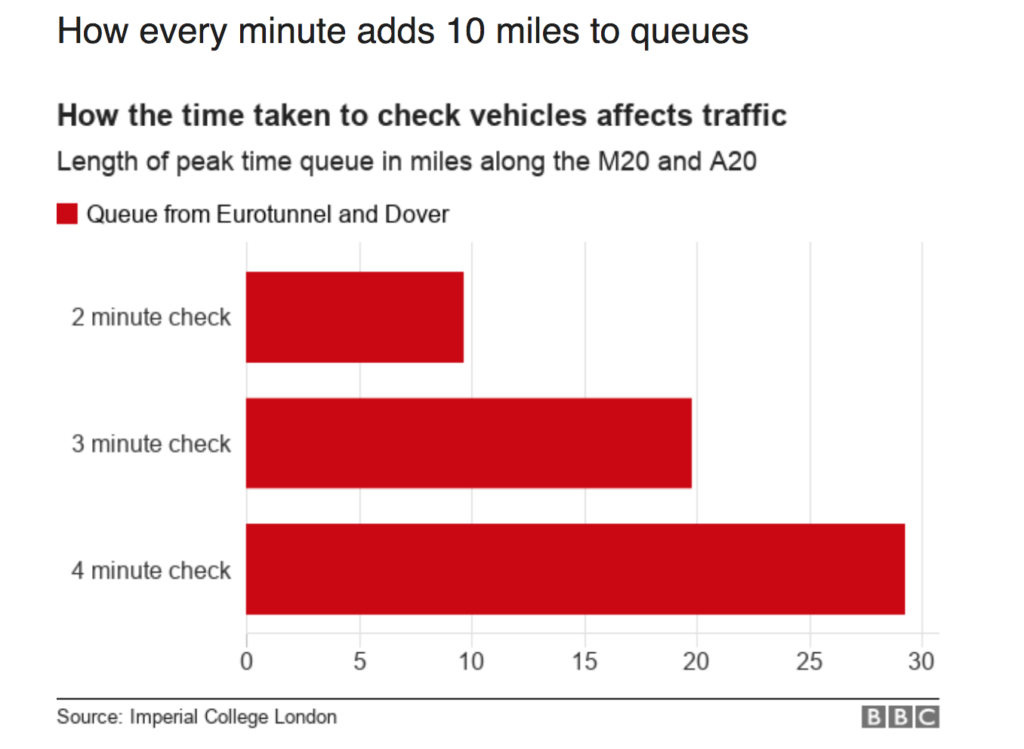When Steve Jobs returned, Apple was 90 days away from bankruptcy. And now?
Daily Archives: August 3, 2018
Does media coverage drive populism? Or is it the other way round?
Very interesting piece of academic research. Title is: “Does Media Coverage Drive Public Support for UKIP or Does Public Support for UKIP Drive Media Coverage?”
Abstract reads:
Previous research suggests media attention may increase support for populist right-wing parties, but extant evidence is mostly limited to proportional representation systems in which such an effect would be most likely. At the same time, in the United Kingdom’s first-past-the-post system, an ongoing political and regulatory debate revolves around whether the media give disproportionate coverage to the populist right-wing UK Independence Party (UKIP). This study uses a mixed-methods research design to investigate the causal dynamics of UKIP support and media coverage as an especially valuable case. Vector autoregression, using monthly, aggregate time-series data from January 2004 to April 2017, provides new evidence consistent with a model in which media coverage drives party support, but not vice versa. The article identifies key periods in which stagnating or declining support for UKIP is followed by increases in media coverage and subsequent increases in public support. The findings show that media coverage may drive public support for right-wing populist parties in a substantively non-trivial fashion that is irreducible to previous levels of public support, even in a national institutional environment least supportive of such an effect. The findings have implications for political debates in the UK and potentially other liberal democracies.
So is the spreadsheet an example of job-destroying automation?
Interesting thought from Tim Harford in his FT column:
Consider an idea dreamt up in 1978, released in October 1979, and so revolutionary that the journalist Steven Levy could write just five years later: “There are corporate executives, wholesalers, retailers, and small business owners who talk about their business lives in two time periods: before and after the electronic spreadsheet.”
Spreadsheet software redefined what it meant to be an accountant. Spreadsheets were once a literal thing: two-page spreads in a paper ledger. Fill them in, and make sure all the rows and columns add up. The output of several spreadsheets would then be the input for some larger, master spreadsheet. Making an alteration might require hours of work with a pencil, eraser, and desk calculator.
Once a computer programmer named Dan Bricklin came up with the idea of putting the piece of paper inside a computer, it is easy to see why digital spreadsheets caught on almost overnight.
But did the spreadsheet steal jobs? Yes and no. It certainly put a sudden end to a particular kind of task — the task of calculating, filling in, checking and correcting numbers on paper spreadsheets. National Public Radio’s Planet Money programme concluded that in the 35 years after Mr Bricklin’s VisiCalc was launched, the US lost 400,000 jobs for book-keepers and accounting clerks.
Meanwhile, 600,000 jobs appeared for other kinds of accountant. Accountancy had become cheaper and more powerful, so people demanded more of it.
Nice illustration of the complexity of the ‘automation = job-killer’ argument.
Quote of the Day
” “I stand before you tonight as an uncle, a sports nut, a CEO, a lover of the beautiful Utah outdoors, and a proud, gay American. I come to deliver a simple message that I want every LGBT person to here and to believe.”
“You are a gift to the world,” Cook said. “A unique and special gift, just the way you are. Your life matters. … My heart breaks when I see kids struggling to conform to a society or a family that doesn’t accept them. Struggling to be what someone else thinks is normal. Find your truth, speak your truth, live your truth.”
“Let me tell you,” Cook continued. “‘Normal’ just might be the worst word ever created. We are not all supposed to be the same, feel the same, or think the same. And there is nothing wrong with you.”
“I know that life can be dark and heavy, and sometimes might seem unreasonable and unbearable, but just as night turns to day, know that darkness is always followed by light. You will feel more comfortable in our own skin, attitudes will change. Life will get better and you will thrive.”
Tim Cook at the 2018 Loveloud festival
Thus spake the CEO of the world’s first trillion-dollar company.
Tech companies and ‘fractal irresponsibility’
Nice, insightful essay by Alexis Madrigal. Every new scandal is a fractal representation of the giant services that produce them:
On Tuesday, BuzzFeed published a memo from the outgoing Facebook chief security officer, Alex Stamos, in which he summarizes what the company needs to do to “win back the world’s trust.” And what needs to change is … well, just about everything. Facebook needs to revise “the metrics we measure” and “the goals.” It needs to not ship code more often. It needs to think in new ways “in every process, product, and engineering decision.” It needs to make the user experience more honest and respectful, to collect less data, to keep less data. It needs to “listen to people (including internally) when they tell us a feature is creepy or point out a negative impact we are having in the world.” It needs to deprioritize growth and change its relationship with its investors. And finally, Stamos wrote, “We need to be willing to pick sides when there are clear moral or humanitarian issues.” YouTube (and its parent company, Alphabet), Twitter, Snapchat, Instagram, Uber, and every other tech company could probably build a list that contains many of the same critiques and some others.
.People encountering problems online probably don’t think of every single one of these institutional issues when something happens. But they sense that the pattern they are seeing is linked to the fact that these are the most valuable companies in the world, and that they don’t like the world they see through those services or IRL around them. That’s what I mean by fractal irresponsibility: Each problem isn’t just one in a sequence, but part of the same whole.
Interesting also that facebook’s Chief Security Officer has left the company, and that his position is not going to be filled.
How to turn the M20 into a truck-park
Simple, just opt for the wrong kind of Brexit — one that involves new customs checks at the UK’s borders. Interesting research at Imperial College, London is simulating the likely impact of different assumptions of how long it takes to do the checks at the Channel ports.
The BBC report of the research says:
The research, led by Dr Ke Han, assistant professor in transport, found the current vehicle check time is about two minutes, which can lead to queues of almost 10 miles during peak times, between 16:00 and 19:00.
Queues on the M20 and A20 between Maidstone and Dover would reach 29.3 miles if checks took an average of four minutes, they found.
This would leave drivers waiting almost five hours on the route.
“An extra 10 miles concentrated on local streets resulting from motorway deadlock is entirely possible,” they added.
Figures were compiled using traffic simulations for the area, using data from official sources such as Highways England, the Department for Transport, the Port of Dover and maps.
The research also took into account different kinds of vehicles such as passenger vehicles, light goods vehicles, heavy goods vehicles (HGVs) and coaches.
These simulations look plausible to me. Two years ago, we were coming back from France in August when there were delays at Folkestone because some migrants had got into the tunnel at Calais, which led to the Europe-bound tunnel being closed. We disembarked from the shuttle at about 16:30 and then drove at 70mph for 15 minutes, during which time the France-bound carriageway of the M20 was blocked by three lanes of stationary trucks. That’s a parking lot 17.5 miles long.
Accidental empires
From an interesting (if sometimes chaotic) interview by Kara Swisher with Adam Fisher, author of Valley of Genius: The Uncensored History of Silicon Valley:
“Silicon Valley still actually makes things, but less and less. We had an economy that was based on making things first, making chips and then computers, and then making bits of software, and then at some point we started getting everything for free; in quotes, “free.” And it stopped being an economy that made things. It became an economy where people made money by extracting things, by mining data.
So it flipped from a making economy to an extraction economy, and we have all the dysfunction that you would see in a mining site in the third world. Mining economies, extraction economies, are kind of corrupt economies because one person or one company ends up controlling everything.”
Fascinating, rambling interview with stories that sometimes bring one up short. Worth reading (or listening to) in full.
The problem with Facebook is Facebook
Kara Swisher has joined the New York Times. Her first column pulls no punches. Sample:
In a post about the latest disinformation campaign, the company said about security challenges: “We face determined, well-funded adversaries who will never give up and are constantly changing tactics. It’s an arms race and we need to constantly improve too.”
The arms race metaphor is a good one, but not for the reasons Facebook intended. Here’s how I see it: Facebook, as well as Twitter and Google’s YouTube, have become the digital arms dealers of the modern age.
All these companies began with a gauzy credo to change the world. But they have done that in ways they did not imagine — by weaponizing pretty much everything that could be weaponized. They have mutated human communication, so that connecting people has too often become about pitting them against one another, and turbocharged that discord to an unprecedented and damaging volume.
They have weaponized social media. They have weaponized the First Amendment. They have weaponized civic discourse. And they have weaponized, most of all, politics.
Lots more where that came from. Worth reading in full.


